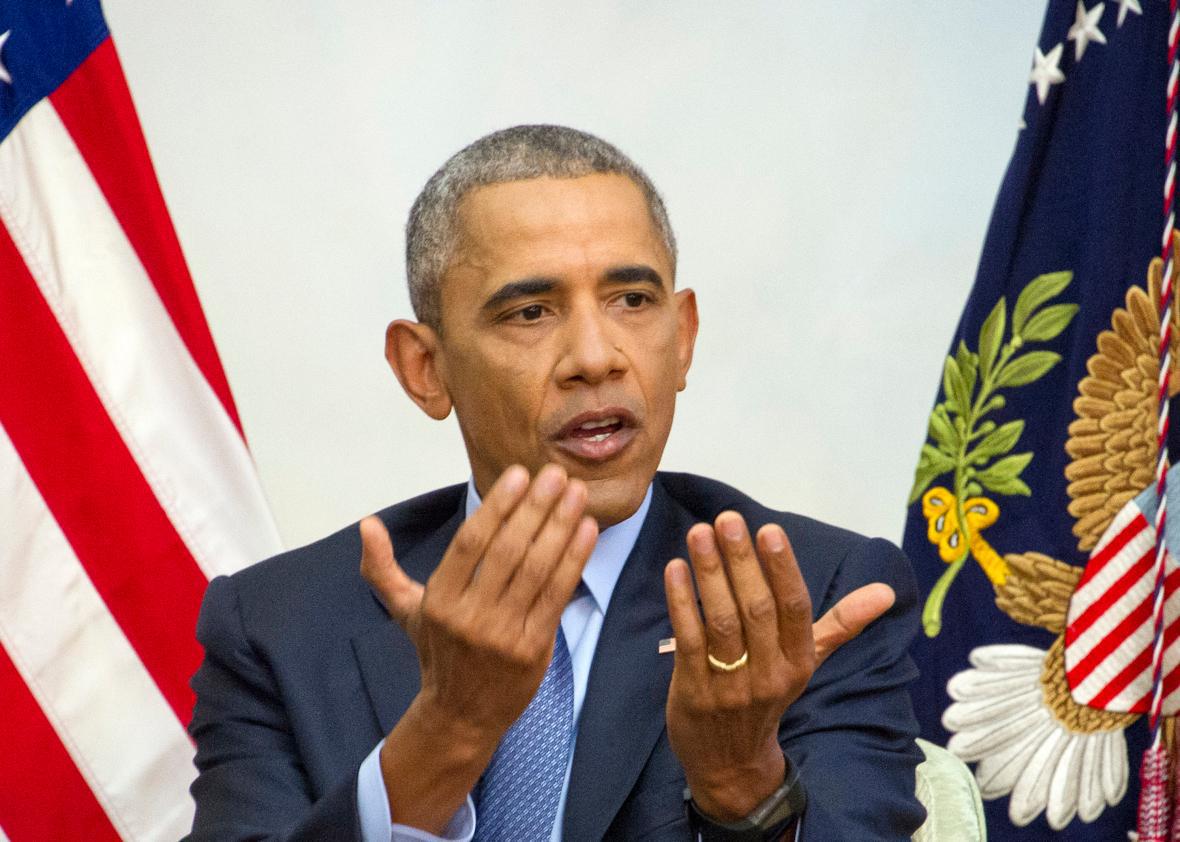President Barack Obama says he realizes he is partly to blame for the Democratic Party’s loss of power in Congress, governor’s mansions and statehouses across the country over the past few years. In an interview with ABC’s This Week, George Stephanopoulos asked the outgoing president about the way in which the “Democratic Party got pretty hollowed out on your watch,” and Obama said he knew some of it fell on him. “I take some responsibility on that,” he said.
Part of the problem, Obama said, “was circumstances.” He came into power in the middle of a financial crisis and while “we did a really good job in saving this economy” it still meant that “in 2010 there were a lot of folks who were still out of work.” But Obama also recognized his job as commander-in-chief kept him so busy he didn’t dedicate that much time to the party itself. “What I think that what is also true is that partly because my docket was really full here, so I couldn’t be both chief organizer of the Democratic Party and function as commander-in-chief and president of the United States,” he said. “We did not begin what I think needs to happen over the long haul, and that is rebuild the Democratic Party at the ground level.” For that to happen, the party needs to focus on areas where Democrats do not have a lot of support. “If there’s a theme in my public career it’s that if ordinary people get involved then good things happen,” he said.
Obama also said that he and his successor “are sort of opposites in some ways,” although he did recognize they’re both very confident people. “It’s probably a prerequisite for the job, or at least you have to have enough craziness to think that you can do the job,” Obama said, noting that he doesn’t think Donald Trump has spent “a lot of time sweating the details” of the office. That could work out in his favor though. “I think that can be both a strength and a weakness,” Obama said. “I think it depends on how he approaches it. If he—if it gives him fresh eyes, then that can be valuable. But it also requires you knowing what you don’t know and putting in place people who do have the kinds of experience and background and—and knowledge that can inform good decision making.”
The president also said he has been having some “cordial” conversations with his “engaging and gregarious” successor. “He has been open to suggestions,” Obama said, “and the main thing that I’ve tried to transmit is that there’s a difference between governing and campaigning.”
The president who will be giving his farewell address on Jan. 10 also emphasized that he has told Trump he should have confidence in the intelligence community if he hopes to make good decisions as commander-in-chief:
So when I talked to him about—our intelligence agencies, what I’ve said to him is—is that there are gonna be times where you’ve got raw intelligence that comes in and in my experience, over eight years, the intelligence community is pretty good about saying, “Look, we can’t say for certain what this means.” But there are gonna be times where the only way you can make a good decision is if you have confidence that the process is working, and the people that you put in charge are giving you their very best assessments.
In lighter fare, Obama also talked about watching Sasha and Malia grow up in the White House, noting that he and Michelle had concerns “mostly about whether they’d develop an attitude.” But now, “all I can say is they have turned out to be terrific young women” who “are sweet, kind, funny, smart, respectful people, and they treat everybody with respect.” The outgoing president says he gives “Michelle most of the credit for how well they’ve done.”
